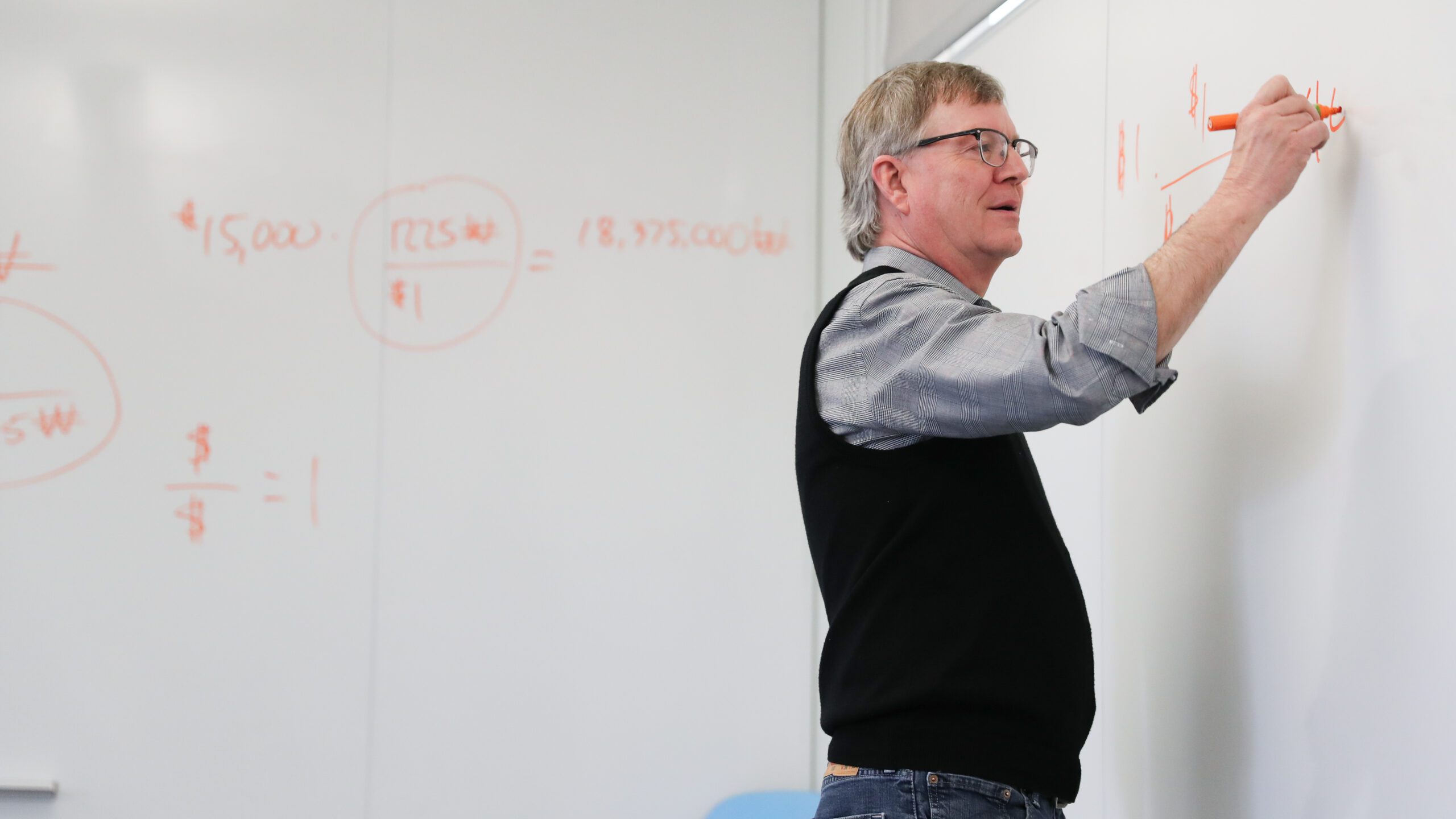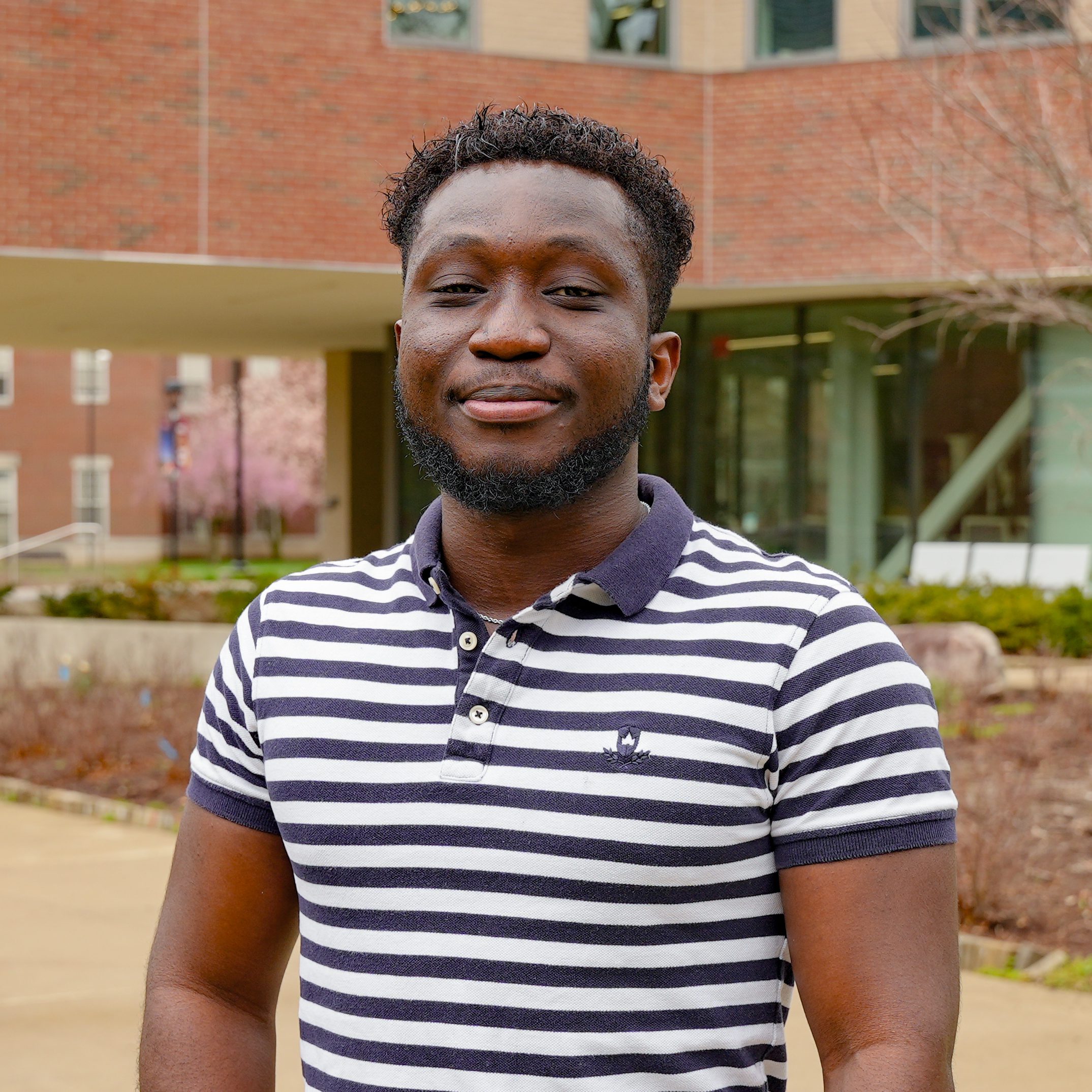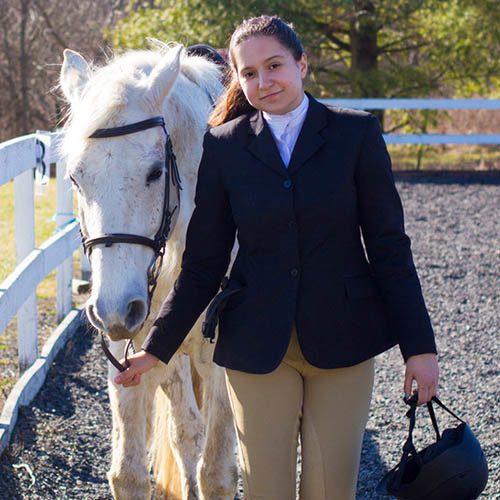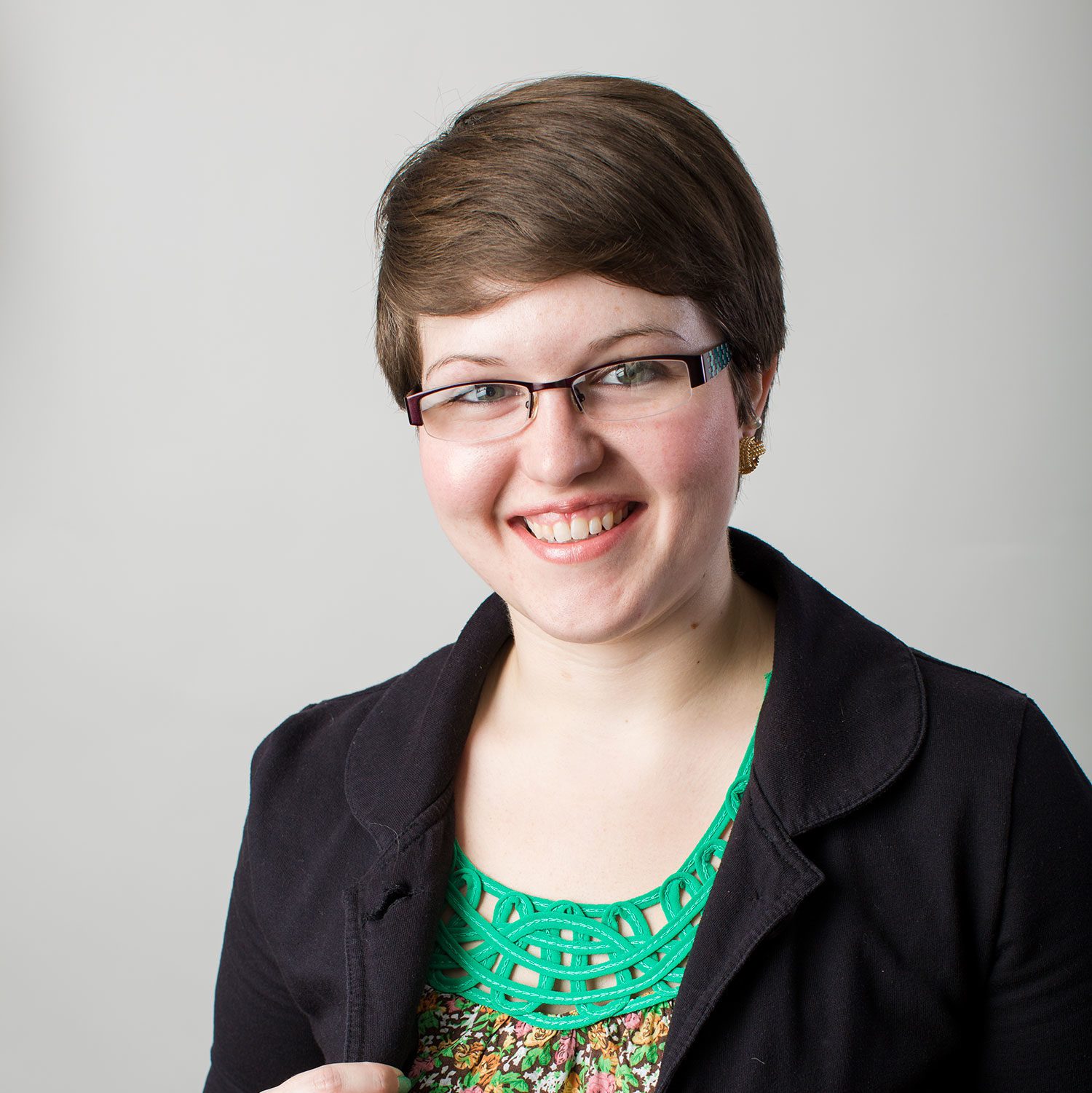
Mathematics
At Earlham, our students develop mathematical fundamentals and problem-solving skills that they can apply in a variety of disciplines or in further study of mathematics.
It’s easy for our mathematics students to design and participate in projects that explore connections between math and other interests as a class project, independent study or as a double major.
Start your adventure
Sign up for more information about Earlham College.
Mathematics graduates have been admitted to graduate school programs in mathematics, statistics and particle physics, among other areas.
Combining logic and precision with intuition and imagination
You may find yourself working alongside faculty in the Math Studio or conducting research on such topics as global warming, pattern formation in animal coats and the spread of ideas during the “Arab Spring.”
Professional development
Our students participate in weekly “mathophiles” seminars and informal lunches and attend regional meetings of professional mathematicians.
Career preparation
The mathematics major prepares you for a variety of careers, and internship options abound. Recent mathematics majors have interned at the Centers for Disease Control, the National Laboratories, the National Institute for Standards and Technology, NASA and the NSA.

Our faculty
Our students and faculty work in close and continual collaboration, both in and outside of class.
Frequently asked questions
Earlham mathematics majors have gone on to become high school teachers, business managers, computer programmers, systems analysts, environmental statisticians, actuaries or mathematics professors.
Recent mathematics majors have interned at the Centers for Disease Control, the National Laboratories, the National Institute for Standards and Technology, NASA and the NSA.
Yes! We encourage our majors to consider off-campus study during their time at Earlham. Learn more about your options through the Center for Global and Career Education.
Through our 3+1 Education Program, you can earn a Bachelor of Arts (B.A.), Master of Arts in Teaching (M.A.T.) and teaching license—all in just nine semesters.
You’ll leave Earlham with two degrees, licensed to teach grades 5-12 in Indiana. (And it’s easy to transfer your license to other states—many of our graduates do!)
Mathematics students love puzzles. If you get excited by the challenge of solving a problem, mathematics could be for you.
Recent alumni are in graduate school studying applied mathematics, actuarial science, computer science, education, engineering, environmental science, law, mathematics, medicine, musicology or theology.



